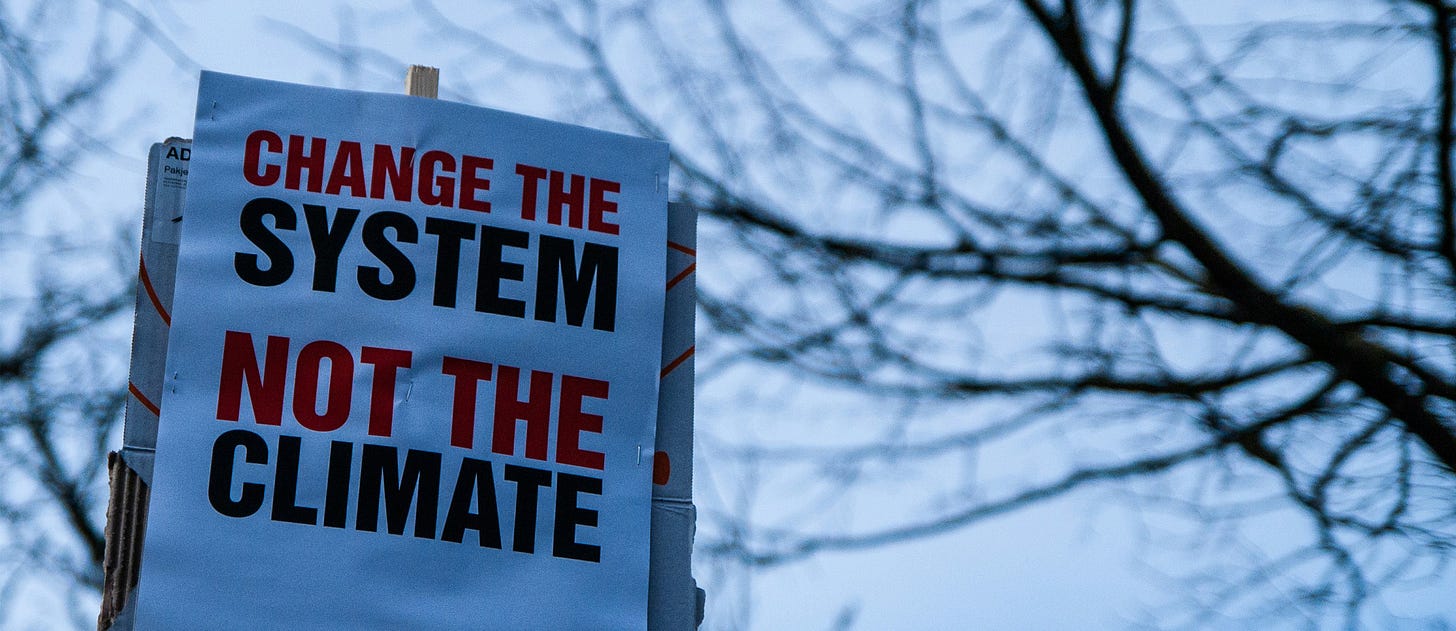50 solutions in 50 U.S. states
Celebrating local climate wins, the economy takes a hit, and how to sponsor a tree
As the bad news in the U.S. piles up – environmental regulations trashed, scientists fired, clinical trials cancelled, and tariffs leveled against every country on earth – good news about real, actionable solutions is more needed than ever. So I was so glad to hear about a brand new project from the New York Times called “50 states, 50 fixes.” All year long, this series will highlight stories of inspiring climate solutions that are happening now in each of the United States’ 50 states.
The project’s first stories highlight a car-free community near Phoenix, Arizona, how bridges and underpasses for wildlife are helping ecosystems in Colorado, and how 500 buildings in Boise, Idaho (including the state capitol building!) are now heated with renewable geothermal energy. “From state legislatures to county boards and community groups, from tribal lands to city parks and postage-stamp backyards, everyday people are doing quiet, vital work to confront climate change and biodiversity loss,” journalists Cara Buckley and Catrin Einhorn write.
Local solutions are crucial, both for what they accomplish directly as well as for inspiring further climate action. Do you have one you’d like to share? Cara and Catrin are still soliciting ideas so if you have one, click here.
And if you don’t live in the US, why not write to one of your newspapers or media outlets and suggest they do the same? There are climate solutions all over the world, and we need to know about them!
The world is currently heading to between 2.7 to 3 degrees Celsius (5 to 5.5 degrees F) of warming by 2100. As I explain in this Global Weirding episode, throughout the history of civilization, the planet’s temperature has been as stable as that of the human body, fluctuating by no more than a few tenths of a degree over centuries to millennia. Just as our body would suffer from such a sudden and extreme fever, so too will our human systems as the world warms.
Even if global warming is limited to 2 degrees C (3.6F), the upper limit of the Paris Agreement, the average person could find themselves 16 percent poorer, a new study by a group of Australian scientists has found.
“In a hotter future, we can expect cascading supply chain disruptions triggered by extreme weather events worldwide,” lead author Dr. Timothy Neal of the University of New South Wales explains.
This work updates previous calculations that systematically under-estimated economic impacts because they did not give enough weight to extreme events and their ripple effects. “It’s in the extremes when the rubber hits the road. It isn’t about average temperatures,” said another co-author, climate scientist Andy Pitman.
As Canadian oil tycoon-turned-environmentalist Maurice Strong said fifty years ago, “There is no economy on a dead planet”—and this new research shows the economic impacts are happening faster than most companies anticipate.
April 25 is Arbor Day, reminding us to celebrate those amazing organisms, trees! I often talk about how much good trees do in cities, from filtering pollution to reducing flooding to providing habitat for biodiversity to keeping us cool during heat waves.
In Saint-Amable, a small town in Quebec, the town government agrees: and they took a new approach to get residents to plant trees. Residents are being charged a $200 tax if they don’t have at least one “leafy, deciduous tree” in their front yard. Using a mapping service and artificial intelligence, the town found 1,200 properties last year that were treeless. Of those, 800 opted to plant a tree to avoid the tax, and the money from the 400 who were taxed is being invested in green initiatives.
This week, think about where you could plant a tree: on your own property or somewhere near where you live. You don’t have to own property, either. In the UK, Trees for Streets can help you sponsor a tree on a street or in a park near you. See this video for more information on how the process works.
If you’re not in the UK, use the search engine Ecosia (which - as a reminder - has planted more than 228,000,000 trees so far using ad revenue generated by your searches) to look up tree sponsoring opportunities in your area. I found three options in my area alone!
Thurs April 17 at 12pm ET - Communicating Climate Risks, Values, and Solutions with The State University of New York (SUNY) - online, free
Wed April 30 at 8pm ET - Don’t Say Climate? Bridging Divides with Katharine Hayhoe a fundraiser for the Climate Psychology Alliance of North America - virtual, $35









Thank you, Katharine, for all you do.